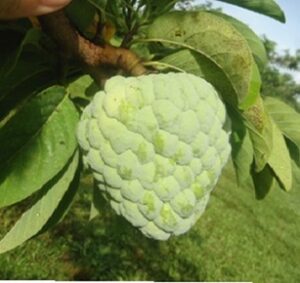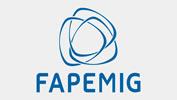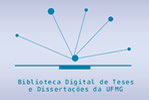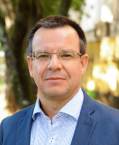Course Program
CREDITS / SUBJECTS
The Program has an Area of Concentration (PLANT PRODUCTION) and two Lines of Research (Science and Technology of Plant Cultivation and Science and Technology of Environmental Resources and Plant Interaction).
38 disciplines are offered annually, four of which are mandatory (Experimental Statistics, Plant Physiology, Seminar I and Seminar II) and 34 are optional. In Seminar I, graduate students will present their research project and, in Seminar II, the results of their dissertation or thesis. Scholarship holders must attend the Teaching Internship discipline.
Each Master’s and Doctoral student must take at least 18 and 36 credits, respectively, to complete their Course. Regardless of the line of research, the student, at the discretion of the advisor and the specificities of the research project, may attend any of the disciplines offered by the Program. Doctoral students must also pass the Qualification Exam, in accordance with the Regulations of the Collegiate of the Graduate Program in Vegetal Production.
MANDATORY DISCIPLINES
- Experimental Statistics
- Plant Physiology
- Seminar I
- Seminar II
OPTIONAL DISCIPLINES
- Low Carbon Emission Agriculture
- Seed Analysis
- Cell And Molecular Biology
- Biology And Integrated Management Of Weeds
- Conservation Of Plant Genetic Resources
- Applied Chromatography
- Crop Culture Ii
- Teaching Internship
- Soil Fertility
- Seed Physiology
- Teaching Training In Higher Education
- Tropical Fruit Growing In The Semi-Arid
- Academic English For Plant Production
- Soil Organic Matter
- Scientific Methodology
- Physical Methods For Identification Of Organic Compounds
- Plant Mineral Nutrition
- Advanced Olericulture
- Research I
- Research Ii
- Plant Propagation
- Integrated Agricultural Production Systems
- Special Topics I
- Special Topics Ii
- Special Topics Iii
- Special Topics Iv
- Notions Of Administration For The Market
- Biological Control Of Insects
- Toefl Test Preparation
- Scientific Writing Of Articles For High Impact Journals
- Cultivar Development And Post Plant Breeding
- Cereal Crops
- Legumino Culture
- Biochemistry
Faculty
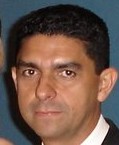
Cândido Alves da Costa
Research area: Management and Cultivation of Vegetables
Phone: +55 (38) 2101 7734
E-mail: candido-costa@ica.ufmg.br
Currículum: http://lattes.cnpq.br/8427741177499943
 Ernane Ronie Martins
Ernane Ronie Martins
Research area: Genetic resources of medicinal and aromatic plants
Phone:+55 (38) 2101 7766
E-mail: ernane-martins@ufmg.br
Currículum: http://lattes.cnpq.br/0435226832258934
 Leonardo David Tuffi Santos
Leonardo David Tuffi Santos
Research area: Weed Biology and Management; Crop–Livestock–Forest Integration
Phone: +55 (38) 2101 7710
E-mail: ltuffi@ica.ufmg.br
Currículum: http://lattes.cnpq.br/6075904912928109
Research area: Management and propagation of exotic and native fruit trees
Phone:+55 (38) 2101 7738
E-mail: psnlopes@ufmg.br
Currículum: http://lattes.cnpq.br/9615218836471966
Pedro Guilherme Lemes Alves
Research área: Entomology and Biological Control
Phone: +55 (38) 2101 -7914
E-mail:pedroglemes@ufmg.br
Currículum: http://lattes.cnpq.br/9084738737031091
 Silvia Nietsche
Silvia Nietsche
Head
Research area: Plant breeding
Phone: +55 (38) 2101 7925
E-mail:snietsche@ufmg.br
Currículum: http://lattes.cnpq.br/2703680841226650
 Demerson Arruda Sanglard
Demerson Arruda Sanglard
Research area: Biothecnology and Plant breeding
Phone: +55 (38) 2101 7782
E-mail: sanglard@ufmg.br
Currículum: http://lattes.cnpq.br/7417873079167401
 Alcinei Místico Azevedo
Alcinei Místico Azevedo
Research área: Agricultural experimentation and computational intelligence
Phone:+55 38 – 2101 7918
E-mail: alcineimistico@ufmg.br
Currículum: http://lattes.cnpq.br/9415018624563178
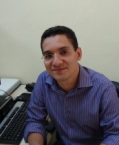 Flaviano Oliveira Silvério
Flaviano Oliveira Silvério
Vice-head
Research área: Trace analysis and environmental chemistry
Phone:+55 (38) 2101 7770
E-mail: flavianosilverio@ufmg.br
Currículum: http://lattes.cnpq.br/1685181985556903
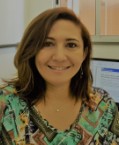 Leidivan Almeida Frazão
Leidivan Almeida Frazão
Research área: Soil management and dynamics of soil organic matter in agricultural, livestock and forestry systems
Phone:+55 (38) 2101 7939
E-mail: lafrazao@ufmg.br
Currículum: http://lattes.cnpq.br/9544258230755043
 Luiz Arnaldo Fernandes
Luiz Arnaldo Fernandes
Research área: Soil fertility and mineral nutrition of plants
Phone: +55 (38) 2101 7707
E-mail:larnaldo@ufmg.br
Currículum: http://lattes.cnpq.br/3677072293273147
 Fernando da Silva Rocha
Fernando da Silva Rocha
Research área: Phytopathology
Phone: +55 38) 2101-7902
E-mail: rochafs@ufmg.br
Currículum: http://lattes.cnpq.br/3067456620760941
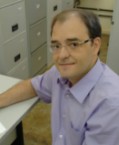 Rodinei Facco Pegoraro
Rodinei Facco Pegoraro
Research área: Plant nutrition and use of residues in agriculture
Phone: +55 (38) 2101 7923
E-mail:rodinei@ufmg.br
Currículum: http://lattes.cnpq.br/0267562971837526
Thiago Gomes dos Santos Braz
Research área: Pasture and forage
Phone:+55 (38) 2101-7914
E-mail: thiagogsbz@hotmail.com
Currículum: http://lattes.cnpq.br/7419071918325021
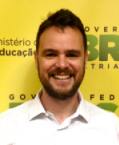 Gustavo Leal Teixeira
Gustavo Leal Teixeira
Research aerea: Corpus Linguistics, Discourse Analysis, Applied Linguistics
Phone: +55 (38) 2101 7743
E-mail: gustavoteixeira@ufmg.br
Currículum: http://lattes.cnpq.br/9341381619953275
André Luiz Athayde
Research area: Business Administration
Phone:+55 (38) 2101 – 7773
E-mail: andreluizathayde@ufmg.br
Currículum: http://lattes.cnpq.br/9326970397011966
SABBATICAL
Evander Alves Ferreira
E-mail: evanderalves@gmail.com
Currículo: http://lattes.cnpq.br/5887024898731149
Igor Costa De Freitas
E-mail: igorcosta87@yahoo.com.br
Curriculum: http://lattes.cnpq.br/4360886970618103
Victor Augustus Vasconcelos De Oliveira
E-mail: victoravoliveira@hotmail.com
Curriculum: http://lattes.cnpq.br/8443374386799986
Maria Nilfa De Almeida Neta
E-mail: marianilfa@gmail.com
http://lattes.cnpq.br/6787851429049200
Bruna Bessel Almeida Porto
E-mail: bruna.bporto@hotmail.com
Helena Souza Nascimento Santos
Research
LABORATORIES
Instrumental Chemistry Laboratory (LQI-UFMG)
LQI-UFMG performs the following analyzes:
- Analysis of metals (soil, sewage sludge, food, water, etc.)
- Analysis of essential oils (medicinal plants)
- Analysis of plant extracts (plants and wood)
- Analysis of chemical contaminants (environmental and food)
- Fatty acid analysis (biofuel and plant oils)
- Determination of Antioxidant Activity (Food and plants)
- Analysis of hormones in plants
- Determination of pesticide residues in environmental and food matrices

3) Microscopy, Microanalysis and Plant Biology Laboratory
The Microscopy, Microanalysis and Plant Biology Laboratory has been operating since 2018 at the Agricultural Sciences Research Center (CPCA) of the Institute of Agricultural Sciences at UFMG, Campus Montes Claros. Its main objective is the development of research in the areas of Anatomy, Development and Plant Reproduction, through the use of Light Microscopy techniques. In the future, the laboratory will also allow the analysis and characterization of different samples, biological or not, through a Scanning Electron Microscope and an Electronic Microprobe, both equipment in the installation phase


4) Plant Phenotyping Laboratory
The Plant Phenotyping Laboratory, coordinated by Professor Alcinei Místico Azevedo and with Professor Thiago Braz as vice-coordinator, is located in CPCA1 but is expected to move to Block B of the ICA. This laboratory is exclusively dedicated to research activities, and the research group working in the laboratory is the Artificial Intelligence, Biometrics, Genetic Improvement and Forage Farming research group. It does not provide any services and the main objective of the laboratory is to support field research. Among future projects and demands, we highlight the need for support for biometric evaluations of plants collected in experiments conducted on the farm.


5) POLLUTION CONTROL LABORATORY
The Pollution/Soil Control Laboratory is coordinated by Professor Leidivan Frazão Almeida and is under the vice-coordination of Professor Luiz Arnaldo Fernandes. The laboratory also has a technical-administrative staff member, Ismael de Jesus Ferreira Amorim, who holds a master’s degree. The laboratory is located in CPCA I and specifically works with research activities. The current line of research is: Dynamics of organic matter in agricultural, livestock and forestry systems, linked to the study group on Crop-Livestock-Forest Integration Systems. Among the main objectives of the laboratory, we highlight: to perform analyses of soil organic matter and its constituents, plant material, and residues of industrial and agricultural origin. The following laboratory analyses are performed: pH, organic carbon and total nitrogen of soil/plant/residue, soil microbial carbon and nitrogen, respirometry and enzymatic analyses of soil, soil and particle density, soil and residue moisture, extraction of macro and micronutrients from soil, chemical and physical fractionation of soil organic matter. Future demands include: expansion of a room for preparing soil samples for research. An expansion is planned to meet the demands of ongoing projects when greenhouse gas emissions are assessed by the agricultural sector.

- GEOTECHNOLOGY AND PRECISION AGRICULTURE LABORATORY
The Geotechnology and Precision Agriculture laboratory is coordinated by Professor Rodinei Facco Pegoraro. The laboratory is located at CPCA I and operates in the teaching and research segments. The laboratory is active and teaches the subject of Plant Mineral Nutrition. In the research segment, the laboratory provides support to the study group Plant Nutrition and Use of Waste in Agriculture – GENURA. Among the research lines, we highlight: Fertilization and nutrition of fruit trees; Use of images in the nutritional diagnosis of plants; Mineralization of Nutrients from Plant Waste; and Nutrition and Fertilization Management of Leguminous Vegetables. The main objective of the laboratory is to promote the development of scientific and technological research related to the research lines in plant nutrition and use of waste in agriculture, in an integrated manner with the academic community and national productive sectors. Among the current and future demands, we mention: a) Structure: acquisition and installation of cabinets, benches, tables and utensils for office organization and b) Equipment: drone with infrared camera, Atomic Absorption spectrophotometer, spectroradiometer, high-performance computer.

- PLANT PATHOLOGY AND PATHOLOGY LABORATORY
The Plant Pathology and Pathology Laboratory is part of the Basic Cycle laboratory complex, in block D, and began operating in 2011. The laboratory is supported by technical staff member Everson de Souza Silva. Its main activities are practical classes in the disciplines of Basic Phytopathology, Applied Phytopathology and Forest Pathology, in the Agronomy and Forestry Engineering courses. Currently, research is also being conducted in Forest Microbiology and Forest Pathology, developing work in the areas of diagnosis and management of diseases of forest importance, in native species of the cerrado and dry forest, and in exotic species.


8) Weed Biology and Management laboratory
The Weed Biology and Management Laboratory was created in 2010, mainly aiming at developing research and supporting teaching and extension activities in this specific area. The Laboratory is the main support structure for the Research Group “Weeds: biology, integrated management and herbicide application technology”, which seeks to develop research and provide qualified professional training in agricultural production systems. The group’s main research lines are: Weed Biology, Herbicide x Plant x Environment Interaction, Integrated Weed Management and Crop-Livestock-Forest Integration.


9) Medicinal and Aromatic Plants Laboratory
The Laboratory of Medicinal and Aromatic Plants, created in 2001, has been developing research, teaching and extension activities. The laboratory is linked to the Research Group “Genetic Resources of Medicinal and Aromatic Plants”, and is developing the research lines “Conservation, management and cultivation of medicinal and aromatic plants” and “Genetic resources”. The laboratory supports the various activities developed at ICA in the area of medicinal and aromatic plants: undergraduate and graduate teaching, analysis of chemical constituents of plants and support for agricultural experimentation. The laboratory is located at the Institute of Agricultural Sciences of UFMG, in Montes Claros, in block A and at CPCA.

- Soils Analysis Laboratory
The soil analysis laboratory of the Institute of Agricultural Sciences of UFMG began its activities of providing services for teaching, research and extension in 1978 and has been part of the Interlaboratory Program for Analysis Control of the State of Minas Gerais – Profert/MG since 1985, when Profert/MG was created. Currently, the soil analysis laboratory provides services in chemical and physical analysis of soils.

Experimental Farm
The Professor Hamilton de Abreu Navarro Experimental Farm (FEHAN) is a complementary body of the Institute of Agricultural Sciences (ICA), comprising a physical area of 232 hectares. Located on the Montes Claros Regional Campus, FEHAN’s purposes are: to support and collaborate, primarily, with the ICA community in teaching, research and extension; to support other Units and Departments of UFMG, through specific instruments, in their didactic-scientific activities and institutional development; and to enable the holding of courses, internships, seminars, technical visits and field days.


Admission
Para acesso ao Edital de Disciplinas Isoladas atual e resultados, clique aqui.
CREDENCIAMENTO DE DOCENTES PERMANENTES E COLABORADOR – 2025
Edital Credenciamento Docentes 2025 PPG Produção Vegetal
EDITAL INTERNO SELEÇÃO DE DOUTORADO SANDUICHE
Edital Seleção – DOUTORADO SANDUICHE PPG Produção Vegetal
Anexo_III___MODELO_DA_DECLARACAO_DO_COORIENTADOR_NO_EXTERIOR_
Anexo_IV___Declaracao_Reconhecimento_da_Fluencia_Linguistica_do_cooorientador_no_exterior__1_
Anexo_V___Declaracao_Reconhecimento_da_Fluencia___Orient_Brasileiro
PROCESSO SELETIVO MESTRADO E DOUTORADO 2025
Edital Regular – Fluxo Contínuo – 2025 – Inscrições Abertas
Edital Regular_Prod. Vegetal_MD_2025
Edital Suplementar – Fluxo Contínuo – 2025 – Inscrições Abertas
Ed. Suplementar_Prod.Vegetal_MD_2025
HOMOLOGAÇÃO DE CANDIDATURAS -2025
Homologação de candidatos 1 2025
BANCAS DE SELEÇÃO -2025
HORÁRIOS DAS ENTREVISTAS -2025
RESULTADOS FINAIS – 2025
PROCESSO SELETIVO MESTRADO E DOUTORADO 2024
Edital Regular – Fluxo Contínuo – 2024 – Inscrições Abertas
Resultado Final Banca de Seleção – 18 de outubro
Homologação candidato 17 Edital Seleção Mestrado e Doutorado 2024
Banca de Seleção homologação candidatos 03 de outubro
Homologação candidatos 16 Edital Seleção Mestrado e Doutorado 2024
Resultado Final Banca de Seleção – 20 de setembro
Horários da Entrevista 20 de Setembro
Horários da Entrevista 26 de Agosto B
CRONOGRAMA DE SUBMISSÃO DE PROPOSTAS AOS PROGRAMAS PADO E PAME
ANEXO_IV_PADO Resultado Avaliação
Ranqueamento candidatas 2 semestre PPG Produção Vegetal
DOUTORADO SANDUICHE NO EXTERIOR 2024
Edital Interno Seleção de Doutorado Sanduiche no Exterior
Modelo: Declaração de reconhecimento da fluência linguística/instituição no exterior
Modelo: Declaração de reconhecimento da fluência linguística/ instituição brasileira
Modelo da carta do coorientador no exterior
PÓS-DOUTORANDO
Resultado Final – Seleção Pos-Doutorando 3ª Chamada
Homologação Candidatos Pós-doutorado – 3ª Chamada
Edital Seleção – Pós-Doutorado – 3ª Chamada
Resultado Seleção Pós-Doutorando 2ª Chamada
Homologação candidatos Segunda Chamada Edital Pós-Doutorado
RETIFICAÇÃO: EDITAL SELEÇÃO DE PÓS-DOUTORANDO
Edital Seleção – Pós Doutorado – 2ª Chamada
Resultado do processo seletivo de pós-doutorando do programa de pós-graduação em produção vegetal
Edital de seleção de pós-doutorando
PROCESSO SELETIVO MESTRADO E DOUTORADO 2024
Resultado Final Banca de Seleçao 26 de agosto Doutorado
Resultado Final Banca de Seleçao 26 de agosto Mestrado
Horários da Entrevista 26 de Agosto
Resultado de Seleção 19 de julho de 2024
Resultado – Banca de Seleção – 22 de maio
Resultado Final – Edital Regular de Seleção 2024
Convocação Apresentação Projeto de Pesquisa
Resultado Final – Banca de Seleção – 29/01/2024
Resultado Final – Seleção – PPGPV
Bancas de Seleção
Banca de Seleção 26 DE AGOSTO de 2024
Banca de Seleção 8 de julho de 2024
Banca de Seleção 19 de fevereiro 2024
Banca de Seleção de 18 Janeiro de 2024
Banca de Seleção 28 de novembro de 2023
Resultado Final Edital 2024 Banca de Seleção 2
Resultado Final Edital 2024 Banca de Seleção 1
Banca de Seleção 09 de outubro de 2023
Homologação de Inscrições
Homologação de candidato – 02/07/2024
Edital Suplementar
Edital Seleção 2024 – Nota Curriculo Banca
Edital Seleção 2024 – Horários de entrevistas Banca
PROCESSO SELETIVO DOUTORADO 2023 – Segundo Semestre (Segunda Chamada)
Resultado Final – Edital 2023-2 (Segunda Chamada)
Horários da apresentação e entrevista – Edital 2023-2 (Segunda Chamada)
Resultado da prova escrita_-_Edital_2023-2_(Segunda Chamada)
Resultado da avaliação de currículos – Edital 2023- 2 (Segunda Chamada)
Homologação Inscrições- Doutorado – Processo Seletivo – Edital 2023- 2 (Segunda Chamada)
Cronograma de Vagas ao Doutorado – 2023 II – Nova Chamada
PROCESSO SELETIVO MESTRADO E DOUTORADO 2023 – Segundo semestre
Resultado da Avaliação Curricular
Agendamento da Apresentação de Projeto e Entrevista
Inscrições Homologadas – Processo Seletivo 2023
Edital Suplementar
Retificação do Edital Suplementar
PROEX
Resultado do Edital de Seleção – Uso do Podcast na popularização do Agro
Edital de Seleção – Uso do Podcast na popularização do Agro
PÓS-DOUTORANDO
Retificação Homologação e horários das Entrevistas
Horário e ordem das entrevistas
Edital de Seleção de Pós-doutorando
PROCESSO SELETIVO – MESTRADO E DOUTORADO
Edital de Seleção de Docentes
Edital Interno de Seleção de Docentes – 2023
Processo Seletivo 2023
Resultado Final Preliminar – Doutorado
Resultado Final Preliminar – Mestrado
Horários, instruções e link de apresentações e entrevista
Resultados parciais avaliação de conhecimentos – Doutorado
Resultados parciais avaliação de conhecimentos – Mestrado
Instruções Avaliação de Conhecimentos
Resultado Preliminar – Análise de Currículo – Doutorado
Resultado Preliminar – Análise de Currículo – Mestrado
Inscrições Homologadas – Edital de Seleção
Edital Regular
Edital Suplementar
Retificação do Edital Suplementar
GRU (GUIA DE RECOLHIMENTO DA UNIÃO)
Agrocast-UFMG
Agrocast-UFMG
Presentation: The central idea of this Podcast is to implement a program with the participation of students, teachers, technicians and researchers engaged in the popularization of scientific articles published in high impact journals and translate them into a colloquial language but with complete conceptual and technical rigor , but that can be understood by ordinary citizens who work in the Agribusiness segment, assisting untrained professionals, secondary, higher and others.
Goals:
- Engage PPG Vegetal Production students in actions to popularize science and technology;
- Improve the visibility and social inclusion of the PPG Vegetal Production;
- Create a program to disseminate the main scientific advances in Agriculture
COCOA IN THE SEMI-ARID REGION: reality or fiction?
CRAFT BEERS: SCIENCE AND TRENDS
ESSENTIAL OILS: APPLICATIONS, BENEFITS AND OPPORTUNITIES
MANGO FLOWER INDUCTION: CHALLENGES AND OPPORTUNITIES


